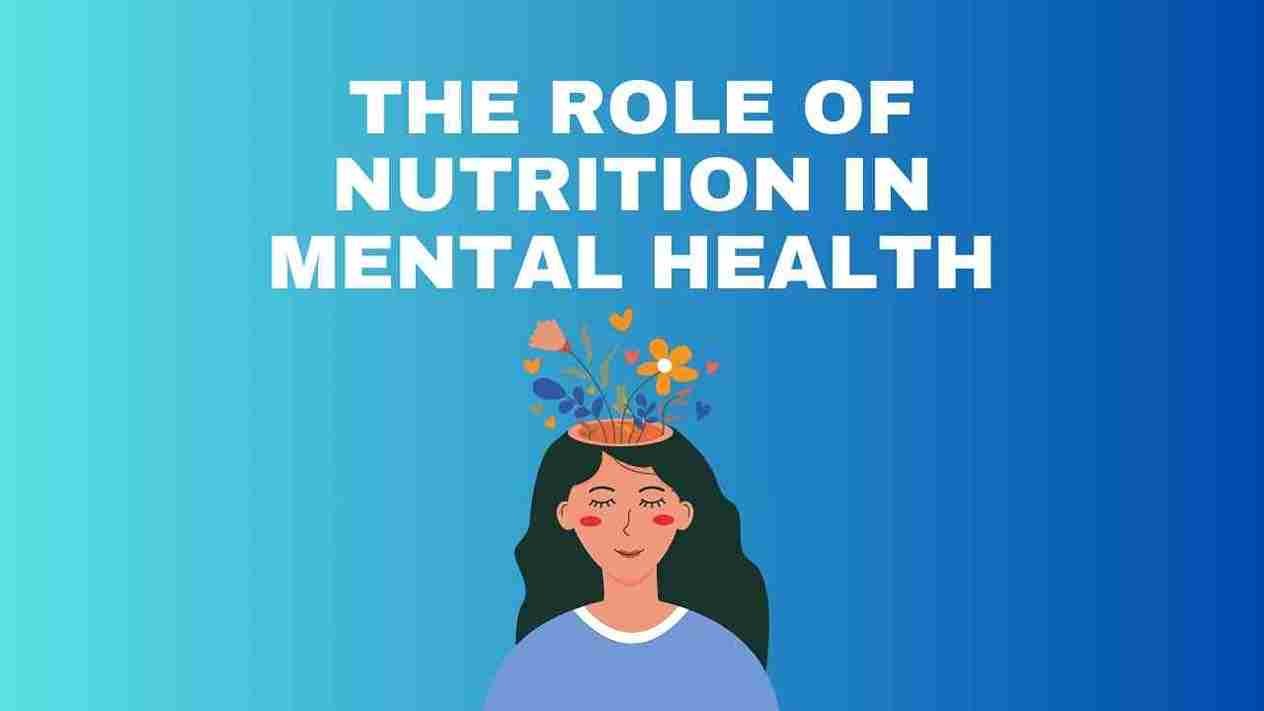In today’s fast-paced world, the significance of mental health cannot be overstated. It is integral to our overall well-being, influencing our cognitive functions, emotional stability, and the ability to cope with stress. While mental health is influenced by a multitude of factors, one aspect that often gets overlooked is nutrition. In this comprehensive article, we delve into the profound connection between nutrition and mental health, shedding light on how the food we consume can have a profound impact on our emotional and psychological well-being.
The Foundation of Mental Health: A Balanced Diet
At the core of mental health lies a balanced diet. Just as a well-constructed building requires a strong foundation, our minds rely on a steady supply of essential nutrients to function optimally. Let’s explore some key components of a balanced diet and their effects on mental well-being.
Omega-3 Fatty Acids: The Brain’s Best Friend
Omega-3 fatty acids, found in fatty fish like salmon, walnuts, and flaxseeds, are renowned for their brain-boosting properties. These fatty acids are crucial for the development and maintenance of brain cells. They play a vital role in neurotransmitter function, helping to regulate mood and prevent mood disorders such as depression and anxiety.
Antioxidants: Fighting the Free Radicals
Free radicals can wreak havoc on our brain cells, leading to oxidative stress, which has been linked to various mental health disorders, including Alzheimer’s disease. Antioxidants, abundant in fruits and vegetables, neutralize these harmful molecules, protecting our brain from potential damage and cognitive decline.
B Vitamins: Fuel for the Brain
The B vitamins, including B6, B9 (folate), and B12, are essential for brain health. They are involved in the production of neurotransmitters like serotonin and dopamine, which influence mood and motivation. A deficiency in these vitamins can lead to mood disturbances and cognitive impairments.
Also check: Understanding Anxiety Disorders
Gut Health and Mental Well-being
The gut-brain connection is a fascinating area of research that highlights the intricate relationship between our digestive system and our mental health. A healthy gut microbiome, composed of diverse beneficial bacteria, is crucial for proper digestion and nutrient absorption. But its influence extends far beyond the digestive process.
Serotonin Production
Did you know that about 90% of serotonin, often referred to as the “feel-good” neurotransmitter, is produced in the gut? A well-balanced diet rich in fiber and fermented foods promotes the growth of beneficial gut bacteria, which, in turn, supports serotonin production. This can help regulate mood and reduce the risk of depression.
Inflammation and Mental Health
Chronic inflammation has been implicated in various mental health conditions, including depression, anxiety, and even schizophrenia. A diet high in processed foods and sugar can contribute to inflammation in the body and brain. Conversely, a diet rich in anti-inflammatory foods, such as turmeric, berries, and leafy greens, can help mitigate these risks.
Nutritional Deficiencies and Mental Health Disorders
Inadequate nutrition can lead to a range of mental health disorders. It’s imperative to recognize the signs of nutritional deficiencies and take action to address them.
Iron Deficiency Anemia and Fatigue
Iron deficiency can result in anemia, leading to fatigue and reduced cognitive function. Ensuring an adequate intake of iron-rich foods like lean meats, beans, and spinach is essential for maintaining mental alertness.
Vitamin D and Seasonal Affective Disorder (SAD)
During the winter months, when sunlight exposure is limited, many people experience Seasonal Affective Disorder (SAD). Vitamin D, often referred to as the “sunshine vitamin,” plays a role in mood regulation. A deficiency in this vitamin can contribute to SAD and general feelings of sadness.
Zinc and Anxiety
Zinc deficiency has been linked to anxiety disorders. Including zinc-rich foods like oysters, nuts, and seeds in your diet can help alleviate symptoms of anxiety and promote a sense of calm.
Practical Steps for Improved Mental Health Through Nutrition
Now that we’ve explored the profound impact of nutrition on mental health, let’s discuss practical steps you can take to make positive dietary changes and enhance your well-being.
1. Embrace a Mediterranean Diet
The Mediterranean diet, characterized by an abundance of fruits, vegetables, whole grains, and olive oil, is associated with lower rates of depression and cognitive decline. Incorporate these elements into your daily meals for a mental health boost.
2. Prioritize Omega-3-Rich Foods
Include fatty fish like salmon, chia seeds, and walnuts in your diet to ensure an adequate intake of omega-3 fatty acids, which support mood stability.
3. Stay Hydrated
Dehydration can impair cognitive function and mood. Make it a habit to drink enough water throughout the day to keep your mind sharp and focused.
4. Minimize Processed Foods
Reduce your consumption of processed foods, sugary snacks, and sodas, which can contribute to inflammation and mood swings.
5. Consider Supplements
In consultation with a healthcare professional, consider supplements to address specific nutrient deficiencies. This can be especially beneficial if you have dietary restrictions or allergies.
In Conclusion
The relationship between nutrition and mental health is a complex and dynamic one. While it’s clear that what we eat can significantly impact our emotional and psychological well-being, it’s essential to remember that a holistic approach to mental health includes various factors, such as exercise, sleep, and stress management.
By making informed choices about our diet and prioritizing foods that support mental health, we can take proactive steps to enhance our overall well-being. Remember, the journey to improved mental health begins on your plate.









